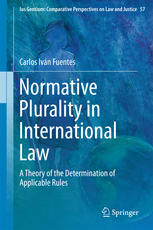

Most ebook files are in PDF format, so you can easily read them using various software such as Foxit Reader or directly on the Google Chrome browser.
Some ebook files are released by publishers in other formats such as .awz, .mobi, .epub, .fb2, etc. You may need to install specific software to read these formats on mobile/PC, such as Calibre.
Please read the tutorial at this link: https://ebookbell.com/faq
We offer FREE conversion to the popular formats you request; however, this may take some time. Therefore, right after payment, please email us, and we will try to provide the service as quickly as possible.
For some exceptional file formats or broken links (if any), please refrain from opening any disputes. Instead, email us first, and we will try to assist within a maximum of 6 hours.
EbookBell Team

4.0
36 reviewsThis book provides a theoretical framework for explaining the choices made by international decision-makers in terms of what constitutes law. It comprehensively analyzes the practice of human rights courts in applying legal instruments outside their competence and proposes that this practice recognizes that different normative instruments coexist in an un-ordered space, and that meaning can be produced by the free interaction of those instruments around a problem. Based on this, the book advances its normative plurality hypothesis, which states that decision-makers must survey the acquis of international law in order to identify all the instruments containing relevant normative information for a particular situation. The set of rules of law applicable to the situation must then be complemented with other instruments containing specific normative information relevant to the situation, resulting in a complete system of norms advancing a common purpose.